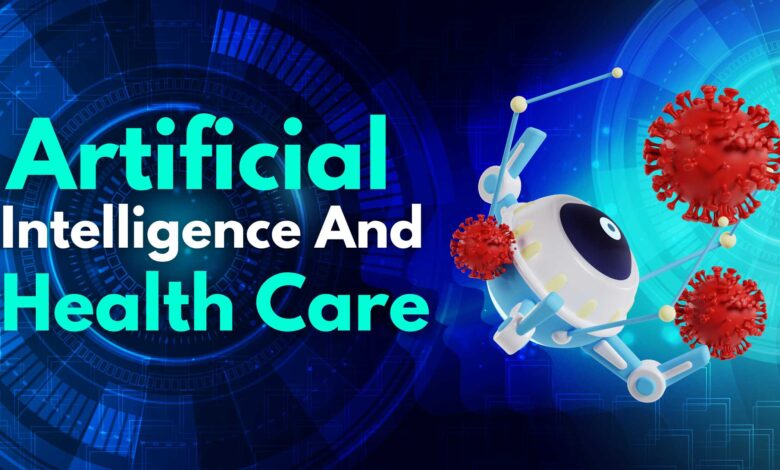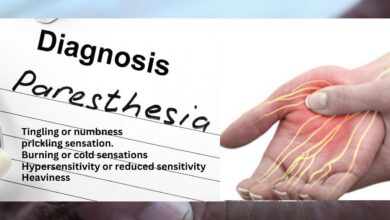

Artificial intelligence (AI) is revolutionizing the healthcare environment, promising improved diagnosis, personalized treatment, and process optimization. But even with this outlook, concerns about privacy, bias, and the ethical implications of AI-driven decision-making remain.
This essay discusses the potential benefits and pitfalls of AI in healthcare, highlighting its transformative power and the need for careful integration.
Table of Contents
Promises for Artificial Intelligence in healthcare:
AI has the potential to improve healthcare in many ways. One of the biggest benefits is in diagnostics, where machine learning algorithms can analyze huge data sets to detect patterns and anomalies that human doctors might miss.
This allows for earlier and more accurate diagnosis, ultimately improving patient outcomes. In addition, AI-powered predictive analytics can predict disease progression, allowing for preventive interventions and personalized treatment plans tailored to each patient’s needs.
In surgical environments, robotics powered by AI algorithms improve precision and minimize human error, leading to safer surgeries and faster recovery times. Additionally, AI-powered virtual medical assistants provide patients with convenient access to medical information and support, promoting patient self-care and engagement.
Challenges and risks:
Despite the potential benefits of AI, its integration into healthcare is not without challenges. AI systems rely on large amounts of sensitive patient information, so a pressing issue is data privacy and security. To maintain patient trust, it is paramount to have robust security measures in place to protect this data from compromise and misuse.
Furthermore, AI algorithms are prone to bias and perpetuate existing inequalities in healthcare. Without careful consideration and mitigation strategies, these biases can exacerbate inequities and undermine principles of equity and equity in health care.
Additionally, the opacity of AI decision-making poses ethical dilemmas as it may be difficult for physicians to interpret and justify algorithmic recommendations. Balancing the autonomy of AI systems with human oversight and accountability is essential to maintaining ethical standards and ensuring patient safety.
Master the future:
A holistic approach is essential to unlocking the full potential of AI in healthcare while mitigating risks. This includes fostering interdisciplinary collaboration between clinicians, data scientists, ethicists, and policy makers to develop transparent and accountable AI systems.
Prioritizing diversity and inclusion in dataset collection and algorithm development can help reduce bias and ensure equitable healthcare. Additionally, a robust regulatory framework must be created to govern the responsible use of AI in healthcare, protect patient rights, and promote transparency and accountability.
Continuous monitoring and evaluation of AI systems is essential to identifying and addressing emerging challenges and ensuring continued compliance with ethical and regulatory standards.
A holistic approach is essential to unlocking the full potential of AI in healthcare while mitigating risks. This includes fostering interdisciplinary collaboration between clinicians, data scientists, ethicists, and policy makers to develop transparent and accountable AI systems.
Prioritizing diversity and inclusion in dataset collection and algorithm development can help reduce bias and ensure equitable healthcare. Additionally, a robust regulatory framework must be created to govern the responsible use of AI in healthcare, protect patient rights, and promote transparency and accountability.
Continuous monitoring and evaluation of Artificial Intelligence systems is essential to identifying and addressing emerging challenges and ensuring continued compliance with ethical and regulatory standards.
Also Read: Coconut Water: 5 Amazing Health Benefits
Conclusion:
Artificial intelligence has the potential to revolutionize healthcare, providing opportunities to improve diagnosis, treatment, and patient outcomes. However, integration must be approached with care and the ethical, social, and regulatory implications must be carefully considered.
Address the dual impact of Artificial Intelligence in healthcare by prioritizing transparency, equity, and patient-centeredness, transforming it while protecting patient rights and ensuring ethical and equitable healthcare for all. power can be harnessed.
Artificial intelligence in healthcare has the potential to revolutionize the industry by enhancing diagnosis, treatment, and patient outcomes. However, to ensure responsible and ethical use of AI, a robust regulatory framework needs to be established. This framework will protect patient rights, promote transparency, and enforce accountability.
Continuous monitoring and evaluation of AI systems are crucial to address emerging challenges and maintain compliance with ethical and regulatory standards. By prioritizing transparency, equity, and patient-centeredness, AI can be harnessed to transform healthcare while safeguarding patient rights and ensuring ethical and equitable healthcare for all.




